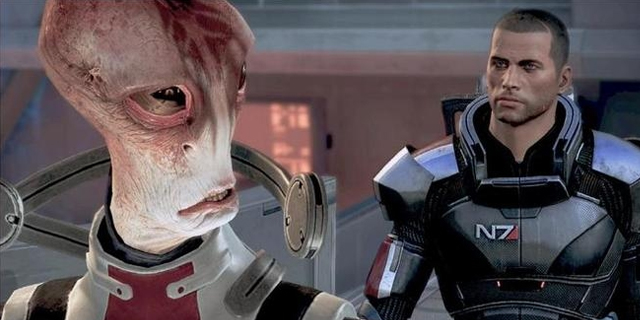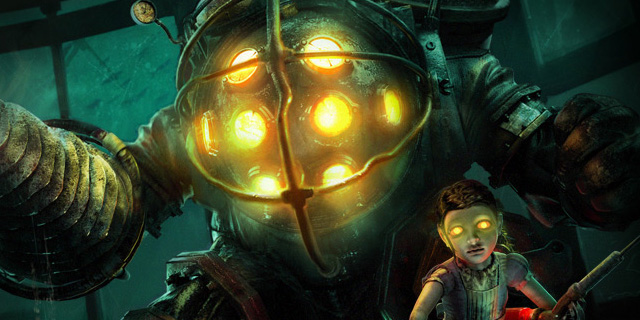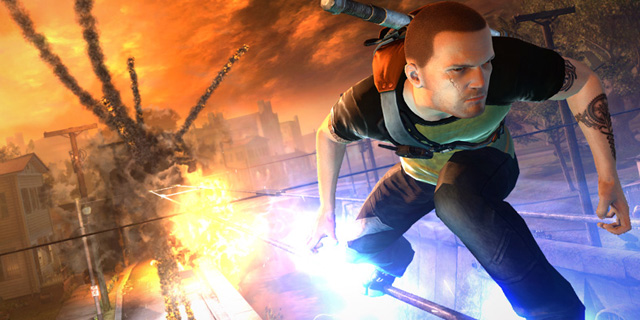
Disclaimer: No nuns were harmed during the writing of this column.
Perhaps this isn’t necessarily something that needs defending, but now’s as good of a time as any to discuss moral choices in games. They seem to be popping up everywhere these days, especially in games that don’t really need them. They allow for developers to give players multiple endings, but those endings (like the choices that precede them) are usually on complete opposite ends of the spectrum. What if you don’t want to be as good as Superman or the incarnation of evil?
Mass Effect 3’s recent launch has helped me put that series in perspective, and look at it as a gauge for how to do moral choices (and just how much those choices can impact not only specific events but the entire trilogy). I realize that the Mass Effect franchise is the only one that has really handled moral choice properly. There are gray choices, but even the obvious good and evil choices don’t always lead to very specific good or evil outcomes. It allows players to stay on specific paths if they so choose. The series throws a few curveballs their way from time to time, making it less about the idea of making every choice a specific side of the coin and more about actual decisions. And those decisions had impact, no matter how much of a paragon or renegade you are.

A gray moral choice allows you to not pick sides, or at least not explicitly pick a good or evil choice. Sometimes when you’re faced with “saving a group of nuns being held hostage in this building” or “just burning the entire building down, killing the bad guys and the nuns,” it’s nice to have a middle ground, or at least some alternatives. Let’s say these nuns are being held hostage by a gang, so you decide to lead a rival gang to the building and let them all have it out. The results, from that point forward, are out of your hands, but you aren’t choosing between life and death. Perhaps some nuns will be killed or perhaps they will all find a way out safely amongst the chaos; either way, you do not control the situation.
BioShock is the biggest offender and probably the best example of how to make poor use of moral choices. As many of you know, the big moral choice involved is between saving and harvesting (killing) the Little Sisters to gain Adam. So, what do you do? Do you save this little girl or do you kill her? Why can’t there be a better, middle option? Maybe you don’t want to be the good guy, but you also don’t want to be on the same level as the Splicers, the enemies that are more than willing to kill Little Sisters in order to gain Adam?
The main problem with this scenario is obvious, but the other big issue I have with it is how, unlike most everything in BioShock, the choice you make is a mere button press. There is no way to make your choice directly through gameplay. Of course, this might have involved you possibly putting a bullet in the head of a little girl, so that probably wouldn’t slide. BioShock 2 opened it up a bit by allowing you to use the Little Sister to harvest Adam for you and send her on her way, which kept you from getting too directly involved while still receiving a reward, but the choices that are still so present in the series never feel truly incorporated into the gameplay.

I’m simplifying it entirely, but the point is clear: the choices shouldn’t be on complete opposite ends of the spectrum. I’m not saying every choice should be morally ambiguous; developers just need to allow for more…variety. Maybe not everyone wants to save the nuns, but they don’t want to be forced to kill them in the process. You don’t have to search hard to find those of us who want to play our characters in games a little darker than the typical “hero,” and games with choice allow us to do that. There is, however, a difference between an anti-hero and a psychopath.
Perhaps most gamers do want to be good guys. I wouldn’t be surprised if the majority of us make good choices over evil ones, but I wonder how many of us make those good choices because our only other option seems so disastrous? Why not put more faith in the player to make decisions closer to how they want to define their character and not something that would simply dictate the final cutscene? I feel developers are learning, stepping away from the “either or” scenario and letting players make those gray choices that don’t stick their characters into one specific category or another, but there is still some time to grow.
inFamous is the perfect example of how a game manages to both accomplish this while still handling it poorly. As Cole, you find yourself wielding powers that are, at times, a bit out of control. Sometimes innocents are hurt and your character changes because of that. When you start off the game, you are given ways to avoid civilian casualties and, as you find yourself defeating bad guys and “saving” people, Cole’s powers naturally become more controlled. The more this happens, the less you worry about the death of the innocents you are essentially trying to save. On the opposite end, if you are less interested in saving lives and just want to stop the bad guys, Cole’s powers become more intense and less controlled. You will find yourself killing more civilians in the process, but you never specifically go out of your way to do it during fights (unless you actually want to).

Where this all falls flat are during the story moments when you are forced to make that specific decision. You can save the innocent people and let your foes get away, or do something that will defeat your enemies and possibly harm the people you are supposed to save in the process. It all goes back to “do you want to save the nuns or kill them?” Yeah, it’s kind of silly, especially when a game as open as inFamous is in terms of gameplay feels so restricted in its narrative. inFamous 2 does the same, going so far as to stick you in the middle of two different characters: one is out to save the city, the other just wants to have fun and “control” the city. Again, completely silly and kind of restricts the story from being a little more ambiguous the same way the gameplay can be.
Perhaps inFamous is a bad example. It isn’t attempting to be realistic in any regard, going more for a “comic book” vibe than anything else. And regardless, you will still fall under a “good” or “evil” category despite how you act during gameplay. Even if you want your Cole to simply be an “anti-hero” who might still want to save the city and stop his enemies, even at the cost of innocent lives, he still is treated like a villain. However, it still shows how you can approach moral choices during gameplay and how it doesn’t have to be a specific choice, unlike in an RPG like Mass Effect.
Honestly, sometimes you just want to play the character who isn’t trying to align themselves with good or evil, but games feel restrictive in that way. Games are becoming more and more about player agency and choice, but even through those choices certain games will make you feel like you’re not free to choose beyond the most basic and arbitrary of moral decisions. There have been steps forward, but there is still a long way to go until we truly see the gray moral choice become something that is infused in game narrative properly. Maybe those nuns can fend for themselves after all; they just need the right opportunity.



















